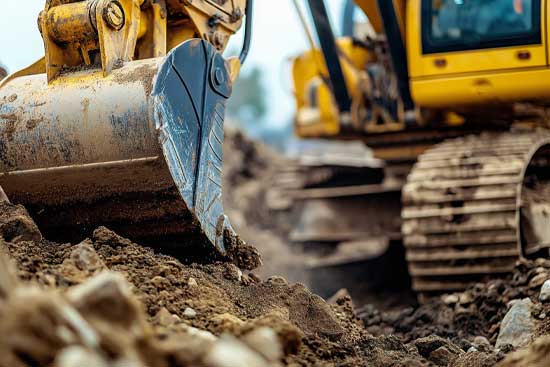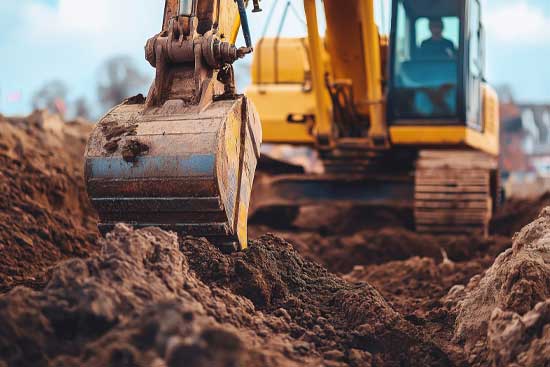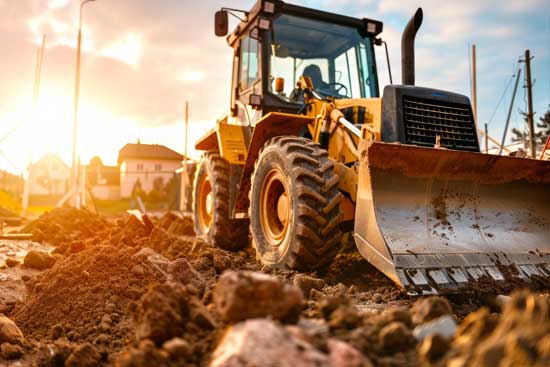Excavation plays a pivotal role in various industries, particularly in construction and civil engineering, by involving the strategic removal of earth or rock to create cavities beneath the ground. While often used interchangeably with terms like digging, excavating entails a more specialized process that requires precision, planning, and expertise.
Understanding the nuances of excavation, its significance in project development, and the tools and techniques involved is essential for ensuring successful outcomes in construction endeavors.
This article delves into the realm of excavation, exploring its definitions, key differences from simpler digging activities, importance in construction projects, safety considerations, environmental implications, notable case studies, and future technological advancements shaping the field.
Introduction to Excavation
Excavation is like the unsung hero of construction projects - it involves the removal of earth or rock to create space below ground level. Essentially, it's like creating a room underground but without the cozy lighting and comfy couches.
Definition of Excavation
Excavation is the fancy term for digging stuff up from the ground to create holes, trenches, or even foundations for buildings. It's like nature's version of creating a space for something new to come to life.
Importance of Excavation in Various Industries
Excavation isn't just reserved for construction sites - it's also crucial in industries like mining, agriculture, and archaeology. Without excavation, we wouldn't have the foundation for our buildings, resources for our industries, or the ability to discover ancient dinosaur bones (which would be a tragedy, really).
Key Differences Between Excavation and Digging
When it comes to digging versus excavation, it's not just about the tools you use - there's a whole world of difference between the two.

Definition and Scope of Digging
Digging is like the casual Friday of excavation - it's less formal and usually involves lighter work. It's great for planting a garden or burying a time capsule, but when it comes to creating a massive underground parking lot, excavation is the real MVP.
Factors that Distinguish Excavation from Digging
Excavation involves deeper, more intricate work that requires heavy machinery and skilled professionals. It's like the A-team of digging, tackling big projects that require precision and expertise.
Importance of Excavation in Construction
Excavation plays a crucial role in construction projects, setting the stage for the structures we rely on every day.
Role of Excavation in Site Preparation
Before a building can rise from the ground, the site needs to be excavated to create a stable foundation. Think of it as laying the groundwork for something amazing to come to life - like preparing the canvas before a masterpiece is painted.
Impact of Proper Excavation on Structural Stability
Proper excavation ensures that buildings stand tall for years to come. By creating a solid foundation and ensuring proper drainage, excavation helps prevent structural issues like sinking or leaning buildings. It's like giving a skyscraper the best pair of shoes to stand on.
Tools and Techniques Used in Excavation
Excavation isn't just about digging with a shovel - it involves a whole toolbox of specialized equipment and cutting-edge technologies.
Overview of Common Excavation Equipment
From excavators to bulldozers to jackhammers, there's a tool for every job in the world of excavation. These heavy-duty machines make light work of moving massive amounts of earth and rock, turning a mountain into a molehill in no time.
 FAQ
FAQ
1. What is the difference between excavation and digging?
The primary distinction between excavation and digging lies in the complexity and purpose of the activity. Excavation involves strategic removal of earth or rock to create voids or cavities for construction purposes, requiring specialized equipment and expertise. On the other hand, digging is a more general term that refers to the act of moving or removing soil without the specific intent of creating a void.
2. What safety measures should be taken during excavation work?
Ensuring safety during excavation work is crucial to prevent accidents and injuries. Some key safety measures include conducting thorough site assessments, implementing protective systems like sloping or shoring, providing proper training for workers, and regularly inspecting equipment for maintenance and functionality.
3. How does excavation impact the environment?
Excavation activities can have environmental implications, such as soil erosion, habitat disruption, and potential contamination of water sources. To mitigate these impacts, it is important to adhere to environmental regulations, implement erosion control measures, and consider environmentally friendly excavation practices.
4. What are some future trends in excavation technology?
The future of excavation technology is marked by advancements in automation, data analytics, and sustainability. Innovations like drone mapping, remote-operated machinery, and eco-friendly excavation techniques are expected to reshape the industry, improving efficiency, accuracy, and environmental sustainability in excavation projects.

